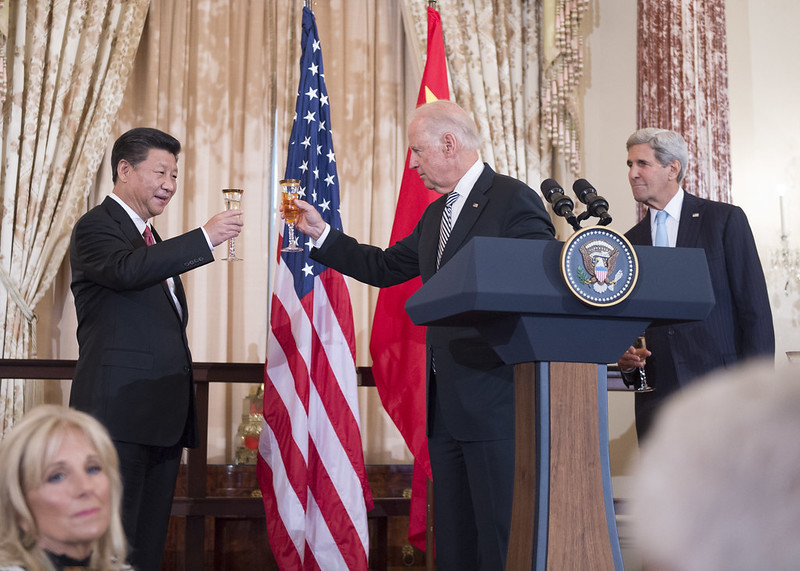
Chinese Communist Party leader and China's President Xi Jinping reportedly threatened that the United States will get "burned" over Taiwan if it interferes with China's planned takeover of the democratic nation.
The Conservative Brief said Xi threatened President Joe Biden during a virtual summit held on Monday on the issue of Taiwan's reunification with China. Xi was quoted in saying during the summit that the United States "will get burned" if Biden attempts to help Taiwan against the military action China intends to launch on it. The said military action intends to unify Taiwan with mainland China.
The virtual summit was held solely between the United States and China after the two presidents "pledged" to have one "to improve cooperation" between the two countries. However, The New York Times said the summit "offered no breakthroughs after three and a half hours of talks." The summit began with a phone call initiated by Biden in the hope of "diminishing" any "conflict" with China.
"The call, which was initiated at Mr. Biden's request, reflected his administration's deep concern that the chances of keeping conflict at bay may be diminishing. Mr. Biden has repeatedly suggested that it should be possible to avoid active military engagement with China, even as the United States engages in vigorous competition with Beijing and continues to confront the Chinese leadership on several significant issues," The New York Times explained.
Xi then told Biden that the United States aiding Taiwan attain its full independence would backfire against America.
"(That) is playing with fire, and if you play with fire, you will get burned. China will have to take resolute measures if the 'Taiwan independence' separatist forces provoke, compel or even cross the red line," Xi said.
Accordingly, Xi's statements come after Biden raised during the summit the United States' commitment to the "one China" policy on Taiwan. The readout of the meeting released by The White House dated November 16 reveals this.
"On Taiwan, President Biden underscored that the United States remains committed to the 'one China' policy, guided by the Taiwan Relations Act, the three Joint Communiques, and the Six Assurances, and that the United States strongly opposes unilateral efforts to change the status quo or undermine peace and stability across the Taiwan Strait," The White House said.
The readout also highlighted that Biden appreciated the opportunity "to speak candidly and straightforwardly to" Xi on America's intentions and "priorities across a range of issues," which he stood up for.
"President Biden underscored that the United States will continue to stand up for its interests and values and, together with our allies and partners, ensure the rules of the road for the 21st century advance an international system that is free, open, and fair. He emphasized the priority he places on far-reaching investments at home while we align with allies and partners abroad to take on the challenges of our time," The White House said.
Biden also raised the human rights issues of China reported in Hong Kong, Tibet, and Xinjiang, along with its "unfair trade and economic practices." Biden also went on to tackle the "importance of a free and open Indo-Pacific" and the United States' "determination" to uphold its commitment for the region. As such, he also highlighted the "importance of freedom of navigation and safe overflight" for the prosperity of the said region.
The meeting also entailed discussions on "managing strategic risks" to ensure that "competition does not veer into conflict" between the United States and China. Discussions also views on regional challenges such as that in Afghanistan and "Iran, as well as, measures that needs to be taken for global energy supplies.































